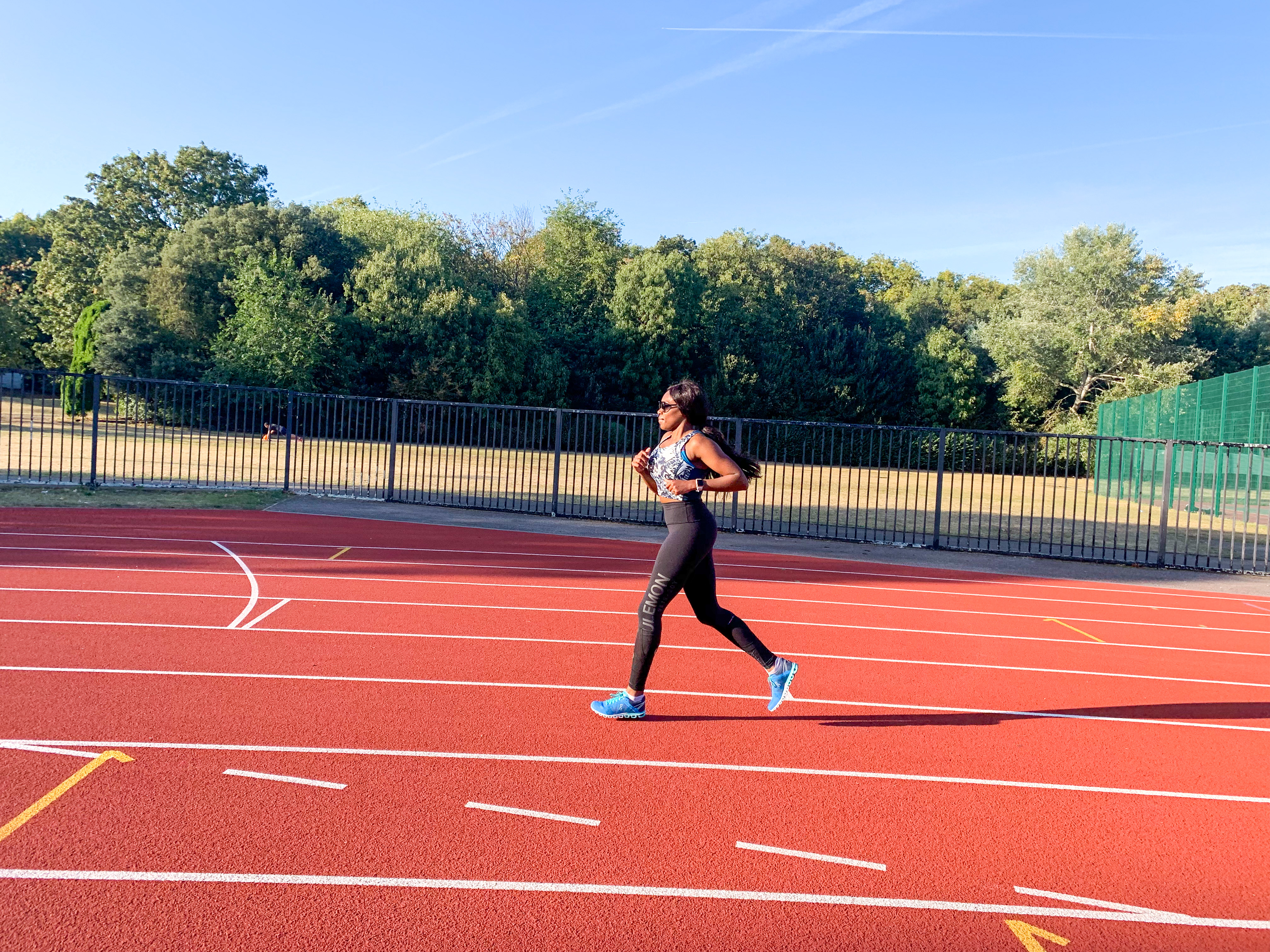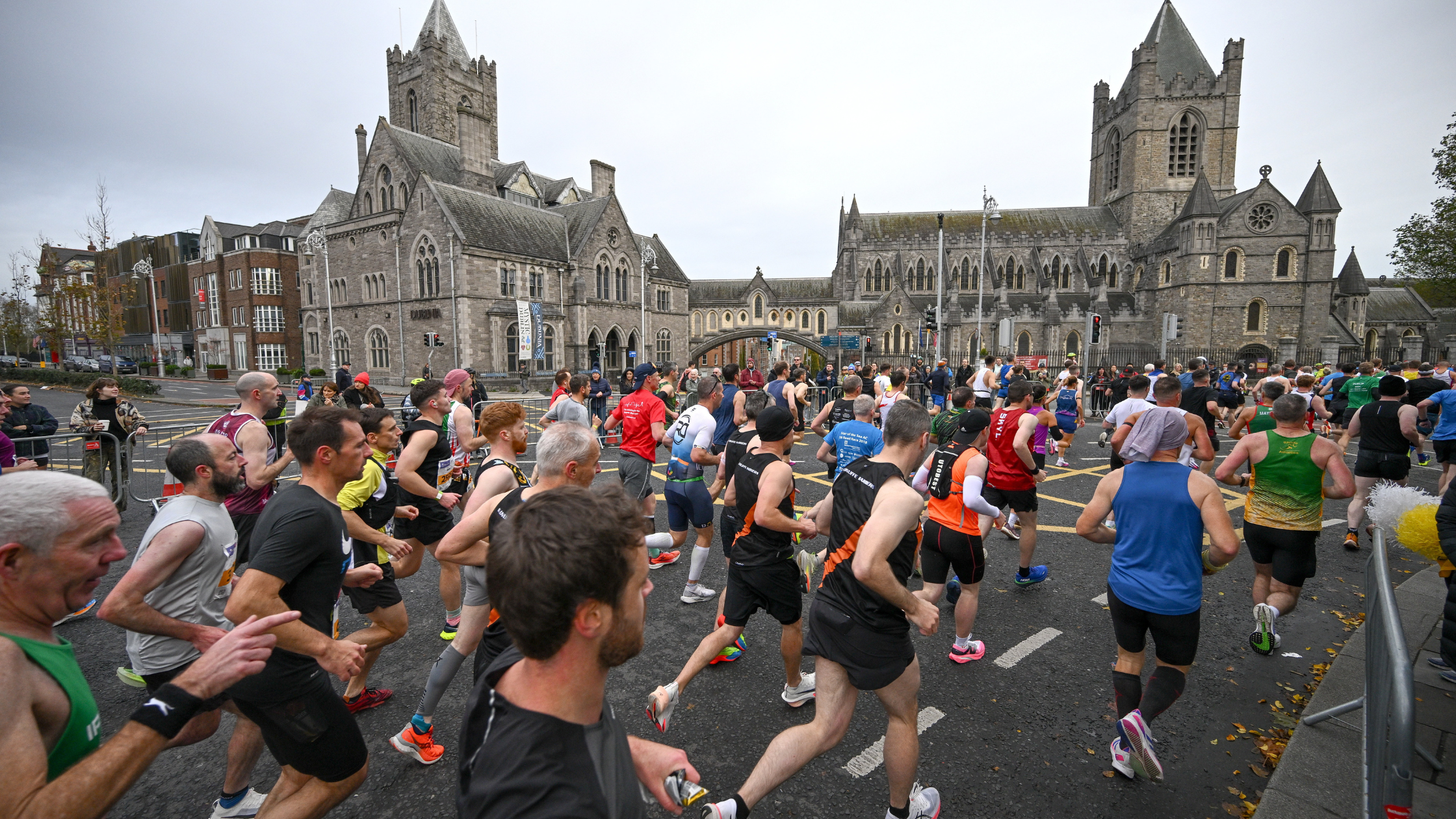Make sure that your race day nerves don’t get the better of you, by following our top tips for avoiding race day nervousness.
Feeling nervous about race day? Make sure the race you're entering is a highlight in your diary rather than a worry. Almost all runners, however experienced they are, will suffer some form of race day nerves. However, there are many strategies that you can employ to help you stay in control and perform at your best.
1. Check out the course in advance
It is said that ‘knowledge is power’, and this saying could easily apply to your knowledge of the course. If you are familiar with the race route, it will hold no fears for you – even if it’s very challenging – which means that the opportunity for nerves to strike will be removed. So, try to run part or all of the race route during your training – or if that’s not possible, at least try to drive over the intended course so you know what to expect.
2. Make a running plan
A key element of banishing your nerves is to know in advance what you are going to do on the day. Are you thinking of starting near the back and then seeing how you feel as the race unfolds, or do you want to try for a personal best and push up towards the front at the start? Whatever you decide, just make sure that you plan ahead and actually have a race strategy , as this way you’ll know exactly what you’re going to do and will be less nervous about the race.
3. Review your run training
It’s very easy as race day approaches to get caught up in the detail of finalising your general race day organisation and travel arrangements, which can leave you feeling increasingly nervous. Although these tasks are necessary, make sure that you take a little time out to review what you’ve achieved and how you intend to put all your training to good use. By reviewing your progress, you will gain confidence – and a confident runner is a less nervous runner.
4. Stick to your running routine
Everyone has a series of routines for most things that they do, and the familiarity of routine can help to prevent nervousness. For example, if you enjoy a leisurely breakfast while reading the newspapers before a morning run, then stick to that same routine on race day. The familiarity of your routine will help to keep you calm, and you will then find it easier to think of your race as ‘just another run’ (but this time in the company of others).
5. Arrive at the race well-prepared
One thing that can throw you into a panic on the day is arriving at the race venue late and being disorganised. The key to keeping those nerves in check is to arrive in plenty of time and to be already wearing the kit that you intend to race in, together with your race number already pinned to your clothing. Also, ensure that your running kitbag contains a selection of other kit items in case you need to cater for varying weather conditions, and don’t forget to take the race organiser’s final instructions. Have a running checklist of things to remember.
6. Enlist family and friends' help
An unfamiliar town, unfamiliar surroundings and unfamiliar faces can all contribute to making you feel ill at ease. To combat these potential problems, surround yourself with friends and family, who can help you at the start and also provide moral and vocal support around the course. Also, consider sharing a car to the race with a couple of training partners so that you’re ‘all in the same boat’. Any nervousness will then be reduced as you prepare together.
7. Warm up for the race
A warm-up should be part of your normal training routine, and is something that will not only help you to prepare physically for running the race but will also help you to prepare mentally for the challenge. Warming up will tell your brain that you’re going to run soon, and if your brain is suitably conditioned then there will be no unexpected elements to your preparation – which means your nerves will be easier to hold in check.
8. Line up correctly for the race
At many large events, the organisers put up time placards stretching back from the start line for runners to line up against according to their predicted finishing times. The advantage of this system is that you will start amongst runners who will be running at a similar pace to you. By beginning the race at a pace that matches your fitness levels, you will find it much easier to stay relaxed, and if you are relaxed, all your energy can be directed into your performance, rather than into combating nerves. If time placards aren’t provided, simply ask a few runners what their expected finishing times will be and line up alongside those that match your own.
9. Start running slowly
Many a race performance has been ruined by nervous runners setting off too fast and completing the opening kilometer on adrenalin, only for oxygen debt to relegate them to a much slower pace and eventual finishing time. One of the keys to successful distance running is pace judgment, and nerves can ruin this judgment if you allow them to take hold. The solution is to hold back in the early stages while you settle into your pace and find your rhythm. Once you’ve relaxed into the race, your nerves will vanish and you’ll then start to perform at your best.
10. Run your own race
A final problem that can scupper your race is to allow friends or training partners to pile the pressure onto you by telling you their expectations of what you can achieve – which may not match your own more accurate plans. It’s important to run your own race and not to allow anyone else to attempt to dictate your race plan, because otherwise you’ll become nervous and stressed – which will detract from both your enjoyment and your overall performance.
On your race day, there are effectively three focus points to concentrate on that will help to keep your nerves at bay: organisation, familiarity, and you. If you focus on these, you should be fine. And remember: your race day is an opportunity to experience a fun occasion in the company of other runners, and should be a celebration of the culmination of your training, rather than a time when you are a nervous wreck! By following our top ten tips you will arrive relaxed, your preparation will be smooth, and you’ll perform at your own personal level. Enjoy your race!














